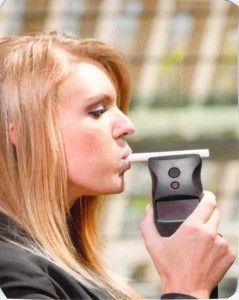A police officer must have probable cause before arresting someone for Driving Under the Influence of Intoxicants, or DUII, in Oregon. Probable cause means that the officer believes that it is more likely than not that the person is driving while intoxicated. Officers usually develop probable cause by observing the person driving, interacting with the person, and giving the person Field Sobriety Tests. Once arrested, the police officer usually will ask the person to take a Breathalyzer, or breath test, to confirm the amount of alcohol in the person’s system.
DUII Implied Consent Laws Require a Breath Test
Under Oregon’s Implied Consent Laws, any person that drives on an Oregon road has already agreed that they will take a breath test (or urine test, if necessary) should they be arrested for DUII. Before giving the person the breath test, the police officer will first read a prepared statement to the person explaining the Implied Consent Laws. After reading this information, the officer will ask the person if they are willing to take the test. Despite the Implied Consent Laws, the officer cannot force the person to take the test and must not give the person the test if the person refuses.
Consequences of Refusing to Take a Breath Test after Arrest for DUII
Refusing to take the breath test once arrested for DUII can get the person in trouble. If you refuse the test, you will automatically get a one-year drivers license suspension that will start 30 days after the arrest. If you have been convicted of a DUII in the last five years and refuse to take the test, the suspension will be for three years. It may be possible to get a hardship permit that allows you to drive to and from work only, but this isn’t available for the first 90 days of the suspension. You can fight the license suspension for breath test refusal at a hearing with the DMV. At this hearing the officer will have to show that there really was probable cause to arrest you for DUII, and will have to show that he or she followed the other necessary steps in order for the arrest to be valid.
Consequences of Taking the Breath Test after Arrest for DUII
There are potentially some bad consequences even if you do take the breath test once arrested for DUII, however. First, if you fail the breath test, meaning you blow at 0.08% BAC or higher, then your license will be suspended for 90 days (you will still have an opportunity for a hearing with DMV). Second, the results of the breath test can then be used against you at any trial for the DUII charge. While a prosecutor can convict a person of DUII without breath test results, based only on the actions of the person that show they were drunk, it is usually much harder to be convicted if there is no breath test result. The fact that a person refused the breath test can be used at trial, however, and could be used to argue that the person knew they were drunk when they were driving.